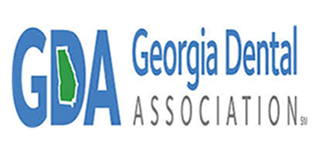Emergency Dentistry
Emergency dentistry isn't like regular health emergencies because there is no 911. Very few people learn about dealing with these types of emergencies before they happen. Here are some important dental first aid tips that everyone should know.
Very few people learn about dealing with these types of emergencies before they happen. Here are some important dental first aid tips that everyone should know.
How To Deal With A Dental Emergency
Unfortunately, when you’re in agonizing pain from a toothache or other emergency dentistry there is no 911 to rely on. However, there are things you can do to handle the situation until you can get to a dentist.
The first thing you should do in an emergency is call your dentist’s office. Most offices have an answering service. In the case of an emergency, they will contact the dentist to relay the message. He will then give you instructions as to what to do next and may have you come to the office.
What To Do When You Lose A Tooth, Filling, Or Crown
In the case of a dislodged or knocked-out tooth, rinse the tooth off, but be careful not to remove any of the tissue that may be clinging to the root. Try to place gently back into the socket, but if that’s not possible, place it in a small container of milk or a cup of water with a pinch of salt. However, the tooth has the best chance of recovery when placed back in the socket within an hour of being knocked out. Then, be sure to see your dentist as soon as possible.
If a crown is dislodged, make an appointment to see your dentist as soon as possible. Then, slip it back over the tooth and secure it with denture adhesive or toothpaste until you can get in to see the dentist. Using superglue is not recommended. Then, when you go for your appointment, bring the crown with you.
If you’ve lost a filling, you can replace the filling with sugarless gum until you can see the dentist.
What To Do For Traumatic Injuries
For chipped or broken teeth, or when there has been a traumatic injury to your mouth, the first step is to rinse your mouth with a solution of mild salt water. Stop the bleeding with a tea bag or moistened gauze square by applying pressure directly to the injured area.
A cold compress can help reduce any swelling and help control the pain. If you cannot get the bleeding to stop or if the pain is more than you can handle, see your dentist right away or go to the emergency room for treatment.
How To Handle Abscesses And Toothaches
A toothache can be one of the most painful things you’ll experience. You can do a couple of things to get the pain down to a manageable level until you can get to the dentist to figure out the cause.
Cold compresses can help when applied to the outside of your cheek. Contrary to what your grandmother may have told you, don't place aspirin or other painkillers directly on the tooth because this can burn your gums and cause more damage.
Acetaminophen taken as directed can help with the pain, but stay away from aspirin because it thins the blood. Also, rinse your mouth with a mild salt water solution to make sure any food is removed from the area and finish with dental floss. Lastly, be sure to see your dentist as soon as possible.
Dental emergencies happen, but with these tips, you’ll know what to do until you can get to the hands of an expert.
For more information on Emergency Dentistry in the Cumming, GA area call A+ Dentistry at (770) 889-5335 today!



